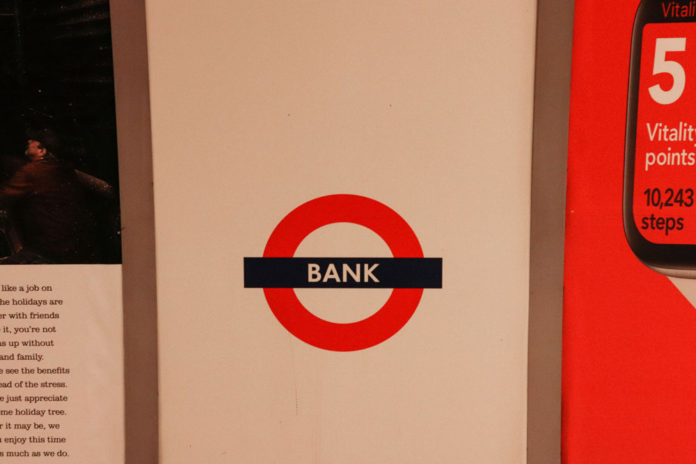
Published in cooperation between A-Links Marketing Ltd. and The Pajaronian
For decades, the bank transfer stood as the undisputed monarch of financial transactions. Reliable, secure and universally accepted, it was the bedrock upon which global commerce and personal finance were built. From paying bills to making significant investments, wiring money between accounts was the go-to method, a testament to its perceived solidity and trust. Yet, as the digital era relentlessly accelerates, consumer expectations have undergone a seismic shift. The world has embraced instantaneity in almost every facet of life, from on-demand streaming to same-day deliveries, and the financial sector is no exception.
Nowhere is this paradigm shift more evident than within the dynamic and fiercely competitive online casino industry. Here, the thrill of winning is inextricably linked to the immediacy of accessing funds. Players, having just experienced the rush of a big win, find themselves increasingly intolerant of antiquated payout methods that force them into agonizing waits. This burgeoning demand for speed has paved the way for the prominence of instant withdrawal casinos. These cutting-edge platforms are fundamentally reshaping player expectations, moving beyond the sluggish pace of traditional banking to deliver winnings with unprecedented speed, often within minutes, redefining what constitutes a truly satisfying gaming experience.
The Modern Consumer’s Demand for Instantaneity
The decline of traditional bank transfers isn’t isolated to online gambling; it’s a symptom of a broader societal shift towards instant gratification. Modern consumers, empowered by technology, expect efficiency and speed in almost every interaction. Why wait days for a financial transaction to clear when communication, entertainment and shopping are all instantaneous?
Traditional bank transfers, by their very nature, are ill-equipped to meet this demand. They are often hampered by:
- Bureaucratic Delays: Involving multiple intermediaries (sender’s bank, recipient’s bank and sometimes correspondent banks for international transfers), each with its own processing times.
- Limited Operating Hours: Transactions are typically processed only during standard banking hours, leading to frustrating delays over weekends and public holidays.
- Manual Intervention: Despite technological advancements, some aspects of bank transfers, particularly for large or international sums, can still involve manual checks, adding to the lag.
This stark contrast between archaic financial infrastructure and modern consumer expectations is a primary driver behind the exodus from traditional bank transfers towards more agile solutions.
The Achilles’ Heel: Why Bank Transfers Fall Short in Online Gambling
In the high-stakes, fast-paced world of online casinos, the inherent limitations of bank transfers become glaringly apparent. For players, these drawbacks directly impact their experience and trust:
- Agonizingly Slow Payouts: This is the most significant disadvantage. While a deposit via bank transfer might clear relatively quickly, withdrawals often take between three to 10 business days. This delay, after the excitement of a win, can be incredibly frustrating, leading to player dissatisfaction and a lack of trust in the casino’s efficiency.
- High Fees: While some domestic bank transfers might be free, international wire transfers can incur significant fees from multiple banks involved in the chain, eating into player winnings.
- Lack of Privacy: Every bank transfer leaves a clear trace on personal bank statements, explicitly detailing transactions with gambling sites. For players who prefer discretion for privacy or financial planning reasons (e.g., mortgage applications), this lack of anonymity is a major deterrent.
- Clunky User Experience: The process itself can be cumbersome. Players often need to input lengthy IBANs (or International Bank Account numbers), SWIFT/BIC codes (or Society for Worldwide Interbank Financial Telecommunication/Business Identifier Code) and other bank details, increasing the chance of errors and requiring more manual effort compared to a few clicks with digital wallets.
- Risk of Reversal Temptation: Lengthy pending periods for bank transfer withdrawals can tempt players, seeing their funds still in their casino account, to reverse the withdrawal and continue playing, often leading to the loss of their winnings.
These combined factors paint a clear picture: Traditional bank transfers are simply not optimized for the speed and convenience that online casino players now demand.
The Ascendancy of Faster, More Efficient Payment Methods
The vacuum left by the declining relevance of traditional bank transfers has been rapidly filled by a diverse ecosystem of faster, more efficient digital payment solutions:
- E-wallets (e.g., Skrill, Neteller, PayPal): These have become stalwarts of the online gambling world due to their speed and security. Funds are typically transferred to and from an e-wallet within minutes or hours of casino approval, acting as an excellent intermediary that keeps bank details private from the casino. Their user-friendly interfaces make them incredibly convenient.
- Cryptocurrencies (e.g., Bitcoin, Ethereum): Offering unparalleled speed, anonymity and global accessibility, cryptocurrencies are a game-changer. Once the casino processes a crypto withdrawal, the funds can arrive in the player’s crypto wallet in minutes. Their decentralized nature means fewer intermediaries and lower transaction fees, appealing to a tech-savvy and privacy-conscious demographic.
- Instant Banking/Pay N Play Solutions (e.g., Trustly, Brite): These innovative services bridge the gap between traditional banking and instantaneity. They allow players to make direct bank transfers that are instantly verified via their online banking credentials, enabling immediate play and often instant withdrawals. These solutions effectively leverage bank-level security while eliminating the associated delays, offering a seamless ‘no registration, no fuss’ experience.
- Debit/Credit Cards: While still widely used for deposits, credit/debit card withdrawals are generally faster than bank transfers (one to five business days) but still fall short of the near-instant speeds offered by e-wallets and crypto.
Online casinos have keenly recognized this shift, integrating advanced payment gateways to offer a wide array of these modern solutions.
The Future of Payments: Adaptation or Obsolescence?
Does the “slow death” of bank transfers imply their complete disappearance? Not entirely. For certain types of transactions, very large corporate transfers, significant real estate dealings, or highly regulated financial movements—the robust, albeit slow, nature of traditional bank wires may continue to serve a purpose due to their inherent traceability and security layers.
However, for consumer-facing, high-volume and speed-critical transactions, particularly in sectors like online gambling, their role is undeniably shrinking. Banks themselves are attempting to adapt, with the proliferation of real-time payment schemes (such as the various real-time payment initiatives implemented in major markets like the UK, Europe and the United States).
The trajectory is clear: the future of payments is undeniably fast, digital and user-centric.
The narrative of the bank transfer’s slow demise is not one of failure, but rather of evolution and adaptation in the financial ecosystem. The relentless demand for immediacy, particularly within sectors like online gaming, has exposed the fundamental limitations of antiquated payment methodologies. Players no longer simply prefer speed; they expect it. By embracing the innovative solutions offered by e-wallets, cryptocurrencies and instant banking technologies, the online casino industry is at the forefront of this payment revolution.
Know the laws governing online casino gambling in your jurisdiction, as it is illegal in California.










